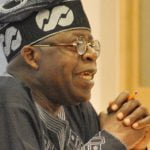The Senate on Wednesday included the consensus mode of primary in the Electoral Act (Amendment) Bill as suggested by the President, Major General Muhammadu Buhari (retd.).
Both chambers of the National Assembly, the Senate and the House of Representatives, however, deleted compulsory direct primaries from the bill.
While the House gave options of parties adopting direct or indirect primaries, the Senate included direct and indirect primaries as well as the consensus mode as suggested by the President during his interview with Channels Television a few weeks ago.
During the interview, Buhari said the lawmakers should include consensus, besides direct and indirect primaries.
He said, “All I said (is that) there should be options,” he said. “We must not insist that it has to be direct; it should be consensus and indirect.”
Buhari had last year vetoed the electoral bill and sent it back to the National Assembly over the restriction of political parties to direct primaries.
Both the Senate and the House of Representatives had suspended action on the bill till resumption on Tuesday, after the Christmas and New Year break.
On Wednesday, the House of Representatives amended Clause Section 87 of the Electoral Act 2010 which is Clause 84 of the electoral bill, by inserting the indirect primary option.
The Senate, however, adopted Clause 84(2) as recommended by the Committee of the Whole and approved direct primary, indirect primary or consensus as procedure for the nomination of candidates by political parties for elections.
The disagreement between both houses is expected to delay the passage of the bill.
The Senate also approved the recommended Clause 84(3) which prescribes that, “A political party that adopts the direct primaries procedure shall ensure that all aspirants are given equal opportunity of being voted for by members of the party and shall adopt the procedure outlined below: (a) In the case of Presidential Primaries, all registered members of the party are to vote for aspirants of their choice at a designated centre at each ward of the federation.
It provides further that, “similar procedure as in (a) above, shall be adopted for governorship senatorial, federal and state constituencies.
The Majority Leader of the Senate, Yahaya Abdullahi (APC/Kebbi-North), had moved a motion for the recommital of the bill to the Committee of the Whole.
Abdullahi noted that the motion was against the backdrop of the “need to address the observation by Mr. President and make necessary amendment in accordance with Order 87(c) of the Senate Standing Orders, 2022 (as amended); and relying on order 1(b) and 52(6) of the Senate Standing Orders, 2022 ( as amended).”
The Senate’s move, it was learnt, was based on the request by the President
However, it was not a smooth ride for the bill at the House. There was tension in the House as members were divided on whether to amend the legislation or override the President’s vote.
At the opening of plenary on Wednesday, the Speaker, Femi Gbajabiamila, beckoned on some leaders of the House, who approached his seat.
Shortly after, other leaders and ranking members of the House joined the meeting.
Those who met with Gbajabiamila included the Deputy Speaker, Ahmed Wase; Majority Leader, Alhassan Ado-Doguwa; Minority Leader, Ndudi Elumelu; Chairman, House Committee on Finance, James Faleke; Chairman, House Committee on Defence, Babajimi Benson, among others.
Other lawmakers watched as they engaged themselves in arguments for over 15 minutes.
Our correspondent observed that Elumelu was particularly in disagreement with what was being said by others at the meeting.
Gbajabiamila consequently called for an executive (closed-door) session, which lasted about 30 minutes.
As the chamber was opened, there was noise in the chamber, which showed that there was a disagreement among the lawmakers.
Elumelu and the Deputy Minority Leader, Toby Okechukwu, led other opposition members to a corner of the chamber where they met for about five minutes, agreed on what to do and dispersed to their respective seats.
As the Speaker called the chamber to order, he asked that all items on the day’s order paper be stepped down except the recommital of the electoral bill – Item 6, being first motion of the day; and Item 9, being the first report for consideration.
Chairman of the House Committee on Rules and Business, Abubakar Fulata, moved the motion for the recommital to the Committee of the Whole.
Elumelu seconded the motion.





